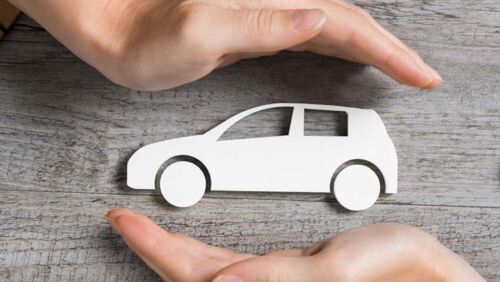Victorians cop nation's highest stamp duty: What you've missed
By Nicola Field
1 in 30 women financially abused, wild weather drives over 48,000 insurance claims, and Victorians cop nation's highest stamp duty. Here are 5 things you may have missed this week.
1 in 30 women subject to financial abuse
New research from the Commonwealth Bank shows over 620,000 Australians are victims of financial abuse, with women most likely to be impacted.
Nearly 1 in 30 women were subjected to financial abuse in 2020 compared to 1 in 50 men.
Financial abuse takes many forms. One in four impacted women are prevented from having a job by their partner. Among male victims, 22% had their income withheld or controlled by an abusive partner.
The CommBank report estimates the direct cost of financial abuse to victims adds up to $5.7 billion, with an estimated additional cost to the broader Australian economy of $5.2 billion.
In late 2021, the Commonwealth Bank became one of the first banks in Australia to implement artificial intelligence (AI) and machine learning techniques to detect abusive behaviour in transaction descriptions within the CommBank app and internet banking.
East coast drenching leaves insurers awash with claims
Heavy rainfall and flooding in south east Queensland and along the east coast of NSW has seen over 48,000 insurance claims lodged in a matter of days.
The Insurance Council of Australia (ICA) says it's too soon to provide an estimate of the cost of claims but it's going to be big.
By Tuesday of this week, Suncorp alone had received over 5,000 claims, 80% of which related to home damage. IAG, which owns brands such as NRMA, CGU and Coles Insurance, had received close to 7,000 claims.
ICA CEO Andrew Hall says, "Following the 2011 Brisbane floods, insurance policies now have a standard flood definition.
"If a policyholder has opted out of flood they are most likely still covered for storm damage, and if they are unsure they should speak with their insurer."
Victoria pays nation's highest stamp duty
The Housing Industry Association (HIA) has crunched the numbers, finding that Victorians pay, on average, almost $30,000 more in stamp duty than Queenslanders when they buy a new house.
According to HIA's annual Stamp Duty Watch Report, in November 2021, Victorian homebuyers paid an average of $40,370 in stamp duty on the state's median property price of $755,000, compared to New South Wales homebuyers who paid $34,807 (4% of the state's median property price). Queensland homebuyers paid just $11,005 (2% of the state's median property price).
"The tax impost - the highest in the nation, is shattering the home ownership dreams of many Victorians and potentially driving much-needed skilled labour out of the state," says HIA Executive Director, Fiona Nield.
On the plus side, Victorians have dodged a new housing tax.
Late February saw the Andrews government announce a tax of 1.75% on new developments, expected to raise $800 million for social housing. Just days later on 1 March, the package was scrapped following considerable industry outcry (and undoubtedly, an upcoming state election).
The beginning of the end for the property boom?
CoreLogic's national Home Value Index shows property prices rose 0.6% nationally in February 2022, the 17th consecutive monthly increase.
But the pace of growth is slowing.
February's growth is the lowest monthly uptick since October 2020 - and well off the pace of 2.8% monthly price growth recorded in March 2021.
According to CoreLogic's director of research, Tim Lawless, every capital city is now recording a slowdown in the pace of price growth.
Sydney and Melbourne copped the biggest hit, with Sydney values dropping 0.1% in February - the first time house prices have declined since September 2020. Melbourne values were unchanged for the month.
The smaller cities saw values rising. In Brisbane values were up 1.8% in February, followed by Adelaide (1.5%), and Hobart (1.2%). Darwin and Canberra both recorded growth of 0.4% for the month, while Perth home prices were up by 0.3%.
Lawless says the slower growth conditions in Australian housing values go well beyond rising expectations that interest rates will head north later this year.
He adds, "With rising global uncertainty and the potential for weaker consumer sentiment amidst tighter monetary policy settings, the downside risk for housing markets has become more pronounced in recent months."
Cash rate on hold - but home loan war heats up
Tuesday saw the Reserve Bank of Australia (RBA) once again hold the cash rate steady at 0.1%. The central bank once again confirmed it's prepared to wait until inflation is sustainably between 2-3% (it's currently 3.5%) before making a move on rates.
That hasn't stopped some lenders from taking the knife to variable loan rates.
The latest Mozo Banking Round-up confirms that a number of lenders including 86 400, Bank Australia, Bendigo Bank and Citi, cut their variables rates in late February.
It's a different story for fixed rates. Of the 90 lenders tracked in the Mozo database, 62 increased some or all fixed rates - including all four major banks.
Get stories like this in our newsletters.



